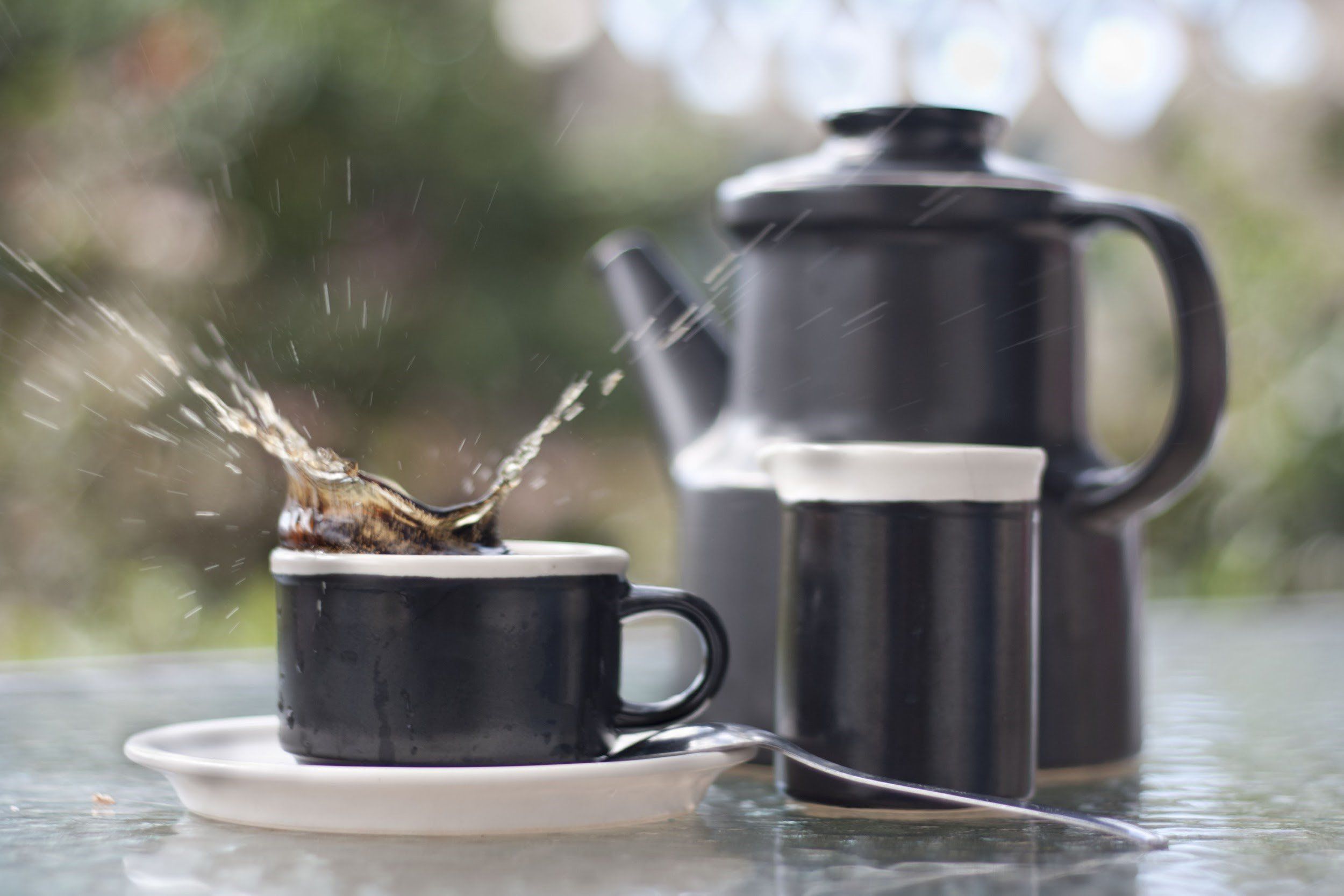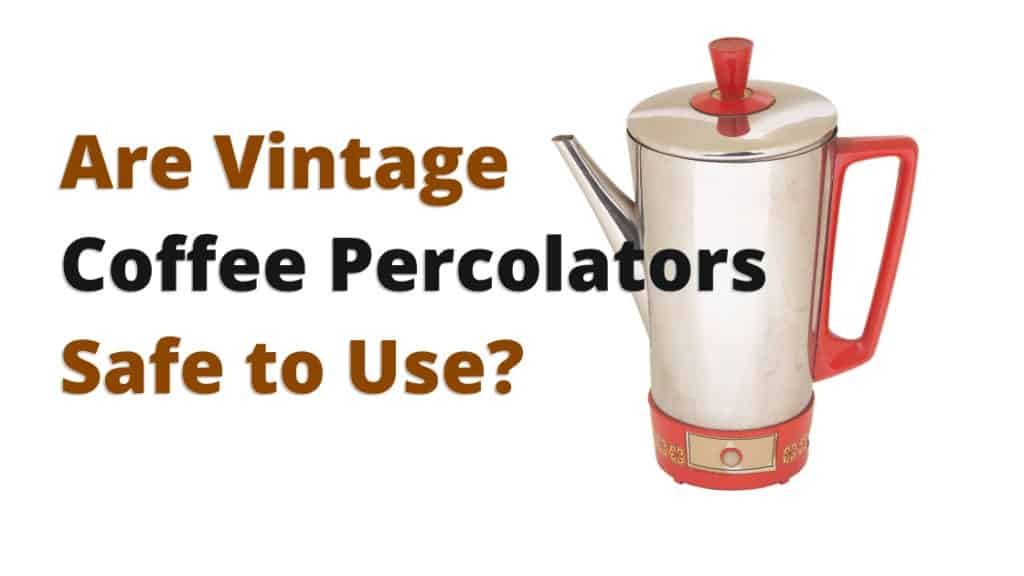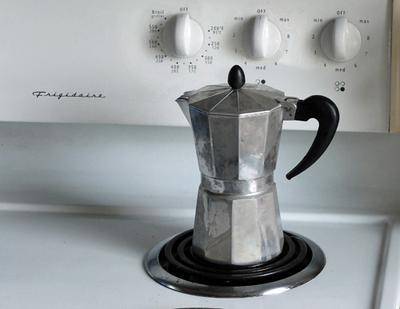As an Amazon Associate CoffeeXplore.com earns from qualifying purchases.
Is Percolator Coffee Bad for You?: Health, Taste & Brewing
Is percolator coffee bad for you?
If you’re a coffee enthusiast or health-conscious consumer, you’ve likely wondered about the potential downsides of brewing methods like percolation. The allure of bold flavors might come at a cost, leaving you questioning its effects on your health.
The truth is, percolator coffee can pose health risks due to over-extraction and elevated cholesterol levels, making it a contentious brewing method among coffee lovers.
As we explore the ins and outs of percolator coffee, you’ll uncover the science behind its brewing process, taste profile, and the specific health concerns it raises. This article will guide you through the advantages and disadvantages of percolator coffee compared to other methods, while also addressing common misconceptions and offering tips for healthier brewing. Whether you’re curious about its effects on cholesterol or want to improve your brewing experience, stay with us to find out everything you need to know about percolator coffee!
Key Facts:
1. Percolator coffee is brewed at higher temperatures, often leading to over-extraction.
2. Unfiltered percolator coffee contains compounds that may raise cholesterol levels.
3. The repeated brewing process in percolators can result in bitter, overly strong coffee.
4. Percolators may reduce some of coffee’s health benefits due to over-extraction.
5. Modern percolator designs aim to address traditional concerns about flavor and health impacts.
The Brewing Process of Percolators
The brewing process of percolators is a unique method that sets it apart from other coffee-making techniques. To understand why percolator coffee might be considered “bad” for you, we need to delve into how these devices actually work.
How Percolators Work
Percolators work by continuously cycling hot water through coffee grounds until the desired strength is reached. This process begins when water in the bottom chamber is heated to boiling point. As the water boils, it’s forced up through a central tube and then sprayed over a perforated basket containing the coffee grounds. The brewed coffee then drips back down into the water reservoir, and the cycle repeats.

This continuous cycling can lead to over-extraction, which is one of the main reasons why some coffee enthusiasts argue against using percolators. The repeated exposure of coffee grounds to boiling water can result in a bitter taste and potentially strip away some of coffee’s beneficial compounds.
Temperature Control Issues
One of the biggest challenges with percolators is temperature control. Most percolators operate at or near boiling point (212°F or 100°C), which is significantly higher than the ideal brewing temperature for coffee.
The optimal temperature range for brewing coffee is typically between 195°F to 205°F (90°C to 96°C). Brewing at higher temperatures can lead to over-extraction, resulting in a bitter taste and potentially reducing some of coffee’s health benefits.
Moreover, at elevations below 5,000 feet, the use of boiling water can cause:
- Increased bitterness
- Loss of subtle flavor notes
- Potential degradation of beneficial compounds
These temperature control issues are a significant factor in why many coffee experts recommend alternative brewing methods that offer more precise temperature regulation.
Potential Health Risks of Percolator Coffee
When considering whether percolator coffee is bad for you, it’s crucial to examine the potential health risks associated with this brewing method. While coffee, in general, offers numerous health benefits, the unique characteristics of percolator brewing may introduce some concerns.
Cholesterol Concerns
One of the primary health considerations with percolator coffee is its potential impact on cholesterol levels. Unfiltered coffee, including that brewed in a percolator, contains compounds called cafestol and kahweol. These substances have been linked to increased cholesterol levels, particularly low-density lipoprotein (LDL) cholesterol, often referred to as “bad” cholesterol.
A study published in the European Journal of Clinical Nutrition found that regular consumption of unfiltered coffee can lead to a significant increase in serum cholesterol levels. The researchers noted:
“Unfiltered coffee contains substances which increase blood cholesterol. Using a filter removes these and makes heart attacks and premature death less likely.”
This finding suggests that the lack of filtration in percolator coffee could potentially contribute to cardiovascular health risks over time.
Over-Extraction and Its Effects
The repeated brewing cycle in percolators can lead to over-extraction of coffee grounds. This process not only affects the taste but may also impact the health benefits typically associated with moderate coffee consumption.
Over-extraction can result in:
- Increased bitterness: The extended contact between water and coffee grounds extracts more bitter compounds.
- Reduced antioxidant content: Prolonged exposure to high temperatures may degrade some of coffee’s beneficial antioxidants.
- Altered caffeine levels: The extraction process can lead to higher caffeine content, which may be a concern for those sensitive to caffeine.
While some coffee drinkers appreciate the strong flavor profile of percolator coffee, it’s important to consider these potential health implications. The over-extraction process could potentially diminish some of the health benefits typically associated with moderate coffee consumption, such as reduced risks of certain diseases.
Flavor Profile and Quality Issues
When discussing whether percolator coffee is bad for you, it’s not just about health – the flavor profile and overall quality of the brew play a significant role in the coffee-drinking experience. Let’s explore how percolator coffee stacks up in terms of taste and quality.
Strong Flavor vs. Balanced Taste
Percolator coffee is renowned for its robust and strong flavor profile. This intensity is a double-edged sword – while some coffee enthusiasts appreciate the bold taste, others find it overwhelming and unbalanced.
The Strength Factor:
– Percolators typically produce a more potent brew due to the repeated cycling of water through the grounds.
– The extended brewing time can lead to over-extraction, resulting in a more bitter and astringent taste.

However, it’s important to note that strength doesn’t always equate to quality. Many coffee connoisseurs argue that the best coffee achieves a balance of flavors, allowing the subtle notes and complexities of the beans to shine through. Percolator coffee often misses this mark, producing a brew that can be one-dimensional in its intensity.
Consumer Preferences
The debate over percolator coffee quality often comes down to personal preference. While some coffee drinkers swear by the strong, nostalgic flavor of percolator coffee, others prefer brewing methods that offer more control over the extraction process.
Factors Influencing Consumer Choice:
1. Flavor Complexity: Many coffee enthusiasts prefer methods that highlight the nuanced flavors of different coffee beans.
2. Brewing Control: Modern brewing methods often allow for better control over variables like temperature and brewing time.
3. Convenience: Despite potential flavor issues, some consumers appreciate the simplicity and reliability of percolators.
It’s worth noting that consumer preferences have shifted over time, with many coffee lovers now gravitating towards brewing methods that offer a more refined and customizable experience. This shift has led to a decline in percolator popularity among coffee aficionados, though the method still retains a loyal following, particularly for outdoor brewing or large batch preparation.
Cleaning and Maintenance Considerations
When evaluating whether percolator coffee is bad for you, it’s crucial to consider the cleaning and maintenance aspects of these coffee makers. Proper care not only affects the taste of your brew but can also impact potential health considerations.
Messiness of Percolators
Percolators, while simple in design, can be surprisingly messy and challenging to clean thoroughly. This is due to their unique brewing process and construction.
Cleaning Challenges:
1. Multiple Components: Percolators typically consist of several parts, including the pot, lid, stem, basket, and spreader cover. Each of these needs to be cleaned separately.
2. Coffee Oils and Residue: The continuous cycling of coffee during brewing can lead to a buildup of oils and residue throughout the percolator.
3. Hard-to-Reach Areas: The central tube and basket can be difficult to clean properly, potentially leading to bacteria growth if not maintained well.

Health Implications of Poor Maintenance:
– Bacterial Growth: Inadequate cleaning can create an environment for harmful bacteria to thrive, potentially affecting the safety of your coffee.
– Flavor Degradation: Residue buildup can impart off-flavors to your coffee, making it taste stale or rancid.
– Chemical Leaching: In the case of aluminum percolators, improper cleaning and maintenance might increase the risk of aluminum leaching into your coffee over time.
To mitigate these issues, it’s essential to clean your percolator thoroughly after each use. This includes disassembling the parts, washing with hot, soapy water, and ensuring all components are completely dry before reassembly.
For those concerned about the potential health impacts of percolator coffee, considering alternative brewing methods that are easier to clean and maintain might be a worthwhile option. Methods like drip coffee makers or French presses often offer simpler cleaning processes while still delivering a satisfying cup of coffee.
Alternative Brewing Methods
If you’re questioning whether percolator coffee is bad for you and considering other options, it’s worth exploring alternative brewing methods. Each method has its own unique characteristics that can affect both the flavor and potential health impacts of your coffee.
Comparison with Other Coffee Makers
Let’s compare percolators with some popular alternative brewing methods:
| Brewing Method | Temperature Control | Filtration | Flavor Profile | Ease of Use | Health Considerations |
|---|---|---|---|---|---|
| Percolator | Poor | Minimal | Strong, Bitter | Moderate | Potential cholesterol concerns |
| Drip Coffee | Good | Yes | Balanced | Easy | Filtered, fewer oils |
| French Press | Moderate | Minimal | Full-bodied | Easy | Similar to percolator |
| Pour-Over | Excellent | Yes | Clean, Nuanced | Moderate | Filtered, fewer oils |
Drip Coffee Makers:
Drip coffee makers offer better temperature control and use paper filters, which can reduce the amount of oils and sediment in your coffee. This method is often recommended for those concerned about cholesterol levels, as the paper filter removes many of the compounds associated with increased cholesterol.
French Press:
Like percolators, French presses produce unfiltered coffee. However, they offer more control over brewing time and temperature. The resulting coffee is full-bodied but without the risk of over-extraction that percolators pose.
Pour-Over Method:
Pour-over brewing allows for precise control over every aspect of the brewing process. It uses a paper filter, reducing oil content in the final cup. This method is favored by many coffee enthusiasts for its ability to highlight the subtle flavors of different coffee beans.
Recommendations for Better Brewing
If you’re attached to your percolator but want to address some of its potential drawbacks, consider these tips:
- Monitor Brewing Time: Reduce the chance of over-extraction by carefully timing your brew.
- Use Coarser Grounds: This can help mitigate some of the bitterness associated with percolator coffee.
- Experiment with Water Temperature: If possible, try to keep the water just below boiling point for a smoother brew.
- Consider a Paper Filter: Some percolators can be adapted to use paper filters, which can reduce oil content in your coffee.
For those open to exploring new methods, trying a Moka pot could be a great alternative. It offers a strong brew similar to percolator coffee but with more control over the brewing process.
Remember, the “best” brewing method often comes down to personal preference. Whether you stick with your percolator or explore other options, the key is to find a method that produces coffee you enjoy while aligning with your health considerations.
Common Misconceptions About Percolated Coffee
When discussing whether percolator coffee is bad for you, it’s important to address some common misconceptions that have persisted over the years. Let’s debunk these myths and provide a more balanced view of percolator coffee.
Is Percolator Coffee Always Too Strong and Bitter?
One of the most prevalent misconceptions about percolator coffee is that it’s always overwhelmingly strong and bitter. While it’s true that percolators can produce a robust brew, this isn’t an inherent flaw of the method but rather a result of improper use.
The Truth:
– Strength is Adjustable: The strength of percolator coffee can be controlled by adjusting the amount of coffee grounds used and the brewing time.
– Bitterness is Avoidable: Excessive bitterness often results from over-extraction, which can be mitigated with proper technique.
To achieve a more balanced flavor with a percolator:
1. Use a coarser grind of coffee to reduce over-extraction.
2. Monitor the brewing time closely to prevent excessive cycling of the water.
3. Experiment with different coffee-to-water ratios to find your preferred strength.
Does Percolator Coffee Use More Coffee Grounds?
Another common misconception is that percolators require more coffee grounds than other brewing methods to produce a satisfactory cup. This belief likely stems from the strong flavor profile often associated with percolator coffee.
The Reality:
– Comparable Usage: Percolators typically use a similar amount of coffee grounds per cup as other brewing methods.
– Efficiency Varies: The efficiency of extraction can vary based on the specific percolator design and brewing technique used.
A standard ratio for percolator coffee is about 1 tablespoon of ground coffee per cup of water, which is comparable to other brewing methods. However, personal preference plays a significant role, and some coffee enthusiasts might adjust this ratio to achieve their desired strength.
It’s worth noting that the perception of using more coffee grounds might come from the tendency to brew larger batches with percolators, especially in settings like camping or large gatherings.
The Nostalgia Factor
While not exactly a misconception, it’s important to acknowledge the role of nostalgia in percolator coffee’s enduring popularity. Many people associate percolators with fond memories, which can influence their perception of the coffee’s quality.
Balancing Nostalgia and Quality:
– Recognize that while nostalgia is valuable, it doesn’t necessarily equate to superior coffee quality.
– Consider exploring modern percolator designs that aim to address some of the traditional concerns about flavor and over-extraction.
For those who enjoy the ritual and nostalgia of percolator coffee but are concerned about potential health impacts, exploring methods like the Moka pot could offer a similar experience with more control over the brewing process.
By understanding and addressing these misconceptions, coffee lovers can make more informed decisions about whether percolator coffee aligns with their taste preferences and health considerations.
FAQs About Is Percolator Coffee Bad for You?
Q: Does percolator coffee raise cholesterol?
A: Yes, percolator coffee can potentially raise cholesterol levels. The unfiltered brewing process allows coffee oils containing compounds like cafestol and kahweol to remain in the coffee, which have been linked to increased LDL cholesterol levels.
Q: Is percolator coffee more bitter than other brewing methods?
A: Percolator coffee can be more bitter than other brewing methods due to the potential for over-extraction. The continuous cycling of hot water through the coffee grounds can lead to excessive extraction of bitter compounds. However, with proper technique and timing, this bitterness can be minimized.
Q: How can I reduce the bitterness in my percolator coffee?
A: To reduce bitterness in percolator coffee, try using a coarser grind, shortening the brewing time, and ensuring the water temperature isn’t too high. Additionally, experimenting with different coffee-to-water ratios can help you find a less bitter brew.
Q: What are the health benefits of using filtered coffee over unfiltered coffee?
A: Filtered coffee, unlike unfiltered percolator coffee, removes many of the oils containing cafestol and kahweol, which are associated with increased cholesterol levels. This filtration process may lead to a reduced risk of heart disease

